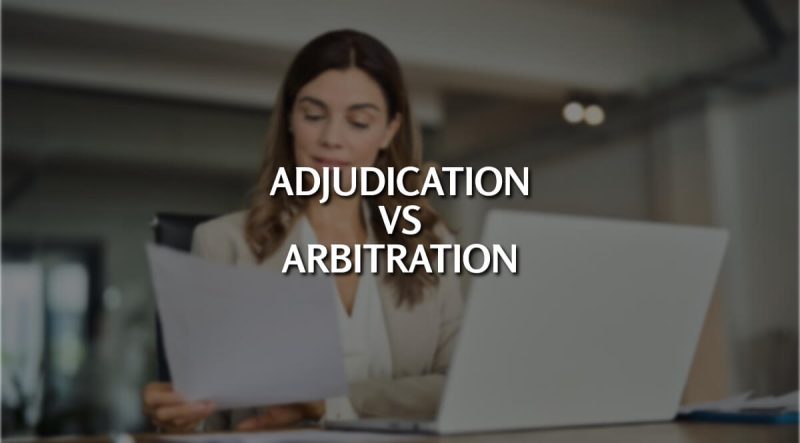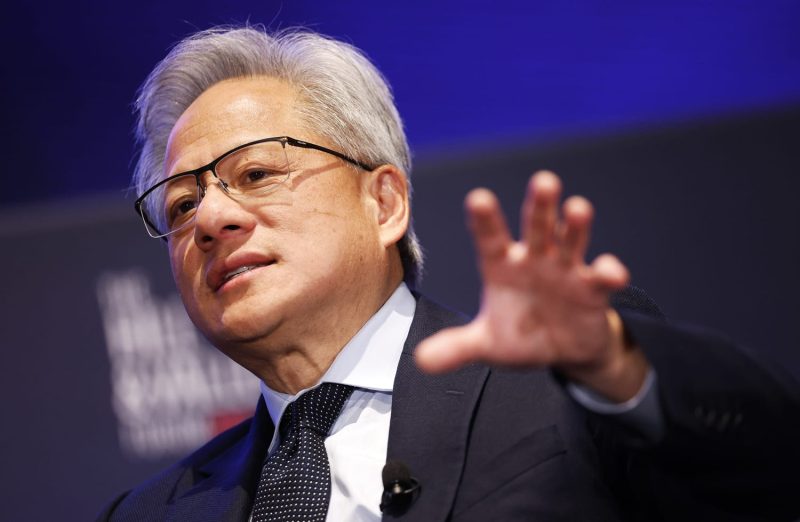
Adjudication VS Arbitration: Key Differences Explained
In the construction industry, resolving disputes efficiently is crucial. Disputes can disrupt cash flow and delay projects. Traditional court proceedings often take too long. Hence, alternative dispute resolution (ADR) methods like adjudication and arbitration are vital. These processes help resolve construction disputes swiftly and fairly. In this article, we delve into the adjudication vs arbitration comparison so you can have a better grasp of these processes.Â
Arbitration VS Adjudication Comparison
Adjudication
Adjudication, introduced under the Housing Grants, Construction and Regeneration Act, offers a quick and binding decision. It follows the “pay now, argue laterâ€� principle, ensuring cash flow continues.Â
The process starts when a party serves a Notice of Adjudication. An adjudicator’s decision is typically fast, providing an adjudication award based on limited grounds.
Arbitration
In contrast, arbitration or litigation involves a more formal process. The arbitration process resembles court proceedings but is private and confidential.Â
It includes detailed statements of case and often international arbitration for cross-border issues. The arbitrator’s decision is binding, but the process is slower compared to adjudication.
Understanding these differences helps parties choose the right method for their needs. Adjudication is ideal for quick resolutions in the construction sector. Arbitration suits those needing a more comprehensive, formal process.
How long does adjudication vs arbitration take?

Adjudication represents a straightforward process. An adjudicator needs between 28 and 42 days to come up with a decision. It is unique to the construction sector and primarily is created to resolve disputes easily and efficiently.Â
On the other hand, arbitration can last much longer because of the additional period needed for statement, evidence and disclosure.
What is the cost of adjudication vs arbitration?
Adjudication is typically more cost-effective than arbitration, as the process is shorter and requires less evidence.Â
However, in adjudication, successful parties usually cannot recover their costs from the other side.Â
On the other hand, in arbitration, costs may be recoverable from the opposing party, but they tend to be higher due to the more complex legal procedures and expert testimony involved.
What is the amount of evidence needed?
Adjudication needs less proof than arbitration. This can be good when the issues are not complicated or when there is a need to hurry the other side.Â
Adjudication started in the UK to help money flow in construction. It is often seen as a way to resolve disputes quickly by paying first and arguing later. This means less evidence is needed in adjudication compared to arbitration.
Adjudication vs Arbitration vs Mediation
Often confused, mediation and arbitration have certain points in common: limited or even excluded intervention of the judge, voluntary process, confidentiality, etc. But what are the differences between these methods of alternative conflict resolution?
What is mediation?

Mediation is an amicable method of out-of-court conflict resolution. It consists of finding an amicable agreement between the parties thanks to the intervention of a third party: the mediator.Â
Through confidential interviews, mediation helps restore communication between people facing a conflict, by establishing, in complete transparency with the parties, a relationship of trust.
The role of the mediator is to supervise the mediation process and to ensure dialogue and listening between the parties, leaving the latter a certain freedom to find an agreement. He does not give his opinion.
The mediator is responsible for the principles of mediation ethics:
Neutrality: as a neutral third party, he orchestrates the exchanges between the parties, remaining free and independent of any institution;
Confidentiality: he ensures that the confidentiality of the dialogue during mediation sessions is preserved, and by virtue of this confidentiality, the mediator cannot be required to testify in court;
Impartiality: he promotes peaceful communication, while refraining from imposing solutions.
Arbitration vs mediation
Unlike mediation, arbitration is a process in which a neutral third party, the arbitrator, is chosen by the parties in conflict to render an award.Â
The dispute is submitted to an arbitrator who renders a decision within several months. Arbitration refers to a private and paid justice system, responsible for settling disputes submitted to it by the parties in compliance with the principles of law. It is only possible to use it under certain conditions.
The use of arbitration implies that the parties concerned by a conflict agree on the settlement of the conflicts.Â
The arbitrator makes a final award: once the award is made, the parties cannot contest the decision in court or refer the matter to an arbitrator again to obtain a different solution on the same matter.
In principle, recourse to arbitration is frequent in international trade matters because it allows disputes to be settled discreetly. However, it is a very expensive form of justice and the process can be slow (particularly the time taken to find a qualified arbitrator).
The post Adjudication VS Arbitration: Key Differences Explained appeared first on FinanceBrokerage.




























